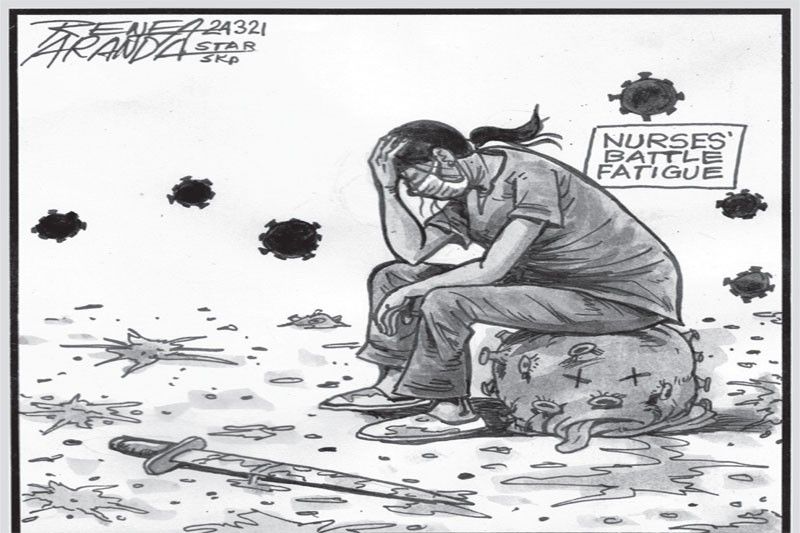EDITORIAL - SOS for nurses

As new COVID cases continued to increase rapidly, the Philippine Hospital Association sent out an SOS for nursing force augmentation last Monday to the police, military and even business process outsourcing firms. Nurses are working in the BPOs as call center employees, but are practicing their profession in the military and police services.
The hospital group issued the call as a surge in COVID cases particularly in Metro Manila threatened to swamp their facilities and exhaust their health frontliners. Since the start of the pandemic, 15,502 healthcare professionals have been infected, with 82 dying of COVID or complications arising from the disease.
Whether the hospitals’ call will be heeded remains to be seen. In March last year as the COVID pandemic was starting, the government imposed a deployment ban on nurses, but gradually eased this as the Philippine Overseas Employment Administration estimated that the country had a reserve force of 400,000 nurses.
The public health crisis allowed the nurses to highlight the difficulties of practicing their profession in their own country, starting with the low salary. The government has begun implementing a law, however belatedly, that raised nurses’ pay in government hospitals to an entry-level monthly salary of about P32,000.
Salaries, however, remain low in many private hospitals, especially in smaller ones. Nursing graduates are also required in some hospitals to work for salaries even lower than the minimum wage, to obtain service credits required for employment overseas.
During the pandemic, temporary employment arrangements, still low salaries and the risk of COVID infection have kept reserve nurses from joining the active healthcare workforce. In response to previous calls for healthcare staff augmentation, they lamented that after many years of neglect, the government remembered them only in a national crisis.
Whether the current COVID spike will change the minds of enough reserve nurses remains to be seen. The situation should provide precious lessons on appreciating the value of health frontliners, and giving them proper remuneration for their work.
- Latest
- Trending


































